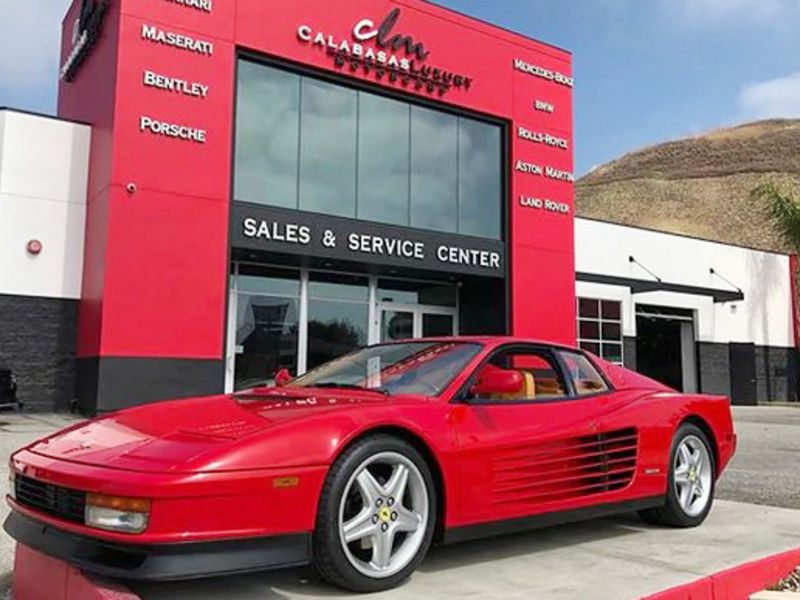
A California used luxury dealership has sued Mercedes-Benz, BMW and their captive finance companies, claiming bans on lease returns to third-party retailers interfere with dealer and lease rights under state code.
Calabasas Luxury Motorcars asked the U.S. Central District Court of California to permanently block such restrictions and award attorney fees. The dealership also seeks class-action status for all dealerships allegedly injured by the two captive finance companies’ policies.
The defendants have not yet filed answers in court. Spokespeople contacted by Automotive News declined to comment on behalf of BMW, BMW Financial Services, Mercedes and Mercedes-Benz Financial Services because of the pending litigation.
Calabasas Luxury said numerous lessees had attempted to trade in or sell their BMW and Mercedes vehicles to the dealership only to have the two automakers refuse the transactions.
According to Calabasas Luxury, a representative from the Mercedes-Benz of Foothill Ranch dealership, also in California, in November told one of Calabasas Luxury’s employees, “MB Dealers are the only ones allowed to payoff an MBFS Lease…No 3rd party payoffs.”
Mercedes Financial Services has described company lease policy differently.
“In terms of exercising the lease purchase option, Mercedes-Benz Financial Services does not provide quotes to non-franchise dealers,” spokeswoman Melinda Mernovage wrote to Automotive News in September. “However, a customer may request a purchase option quote at any time, and we will accept a payment on a lease purchase from any verified payment source.”
Another Mercedes spokeswoman confirmed last week that this statement remained valid. Mercedes of Foothill Ranch has not yet responded to a request for comment.
Asked whether Calabasas Luxury had sought an opinion on the lease policy from the captive finance company itself instead of a Mercedes dealership, Calabasas Luxury attorney Robert Starr said he’d heard from “many people in the industry” that Mercedes would not accept third-party buyouts.
Calabasas Luxury also quoted BMW Financial Services in November as saying the automaker restricts “purchase of [a] leased vehicle or return or trade-in vehicle to an authorized BMW Center. BMW Financial Services will not honor payoffs received from third-party dealerships. In the event a payoff is received from a third-party dealership, BMW Financial Services will return the payment by mail to the original sender.”
This is consistent with what BMW had described to Automotive News in September.
“Our primary goal is to support BMW franchise dealers by creating opportunities to keep more vehicles in our franchise network,” BMW spokesman Phil Dilanni wrote in an email. “Therefore, we’re prioritizing franchise dealers on our online auction platform to ensure they have more opportunities to purchase off-lease vehicles. In addition, we will temporarily suspend payoffs from third-party dealers as of October 1.”
Calabasas Luxury’s November lawsuits accuse both automakers of having “cornered the used vehicle market by refusing to allow lessees to trade-in their vehicles with anyone other than Defendants’ affiliates.” BMW and Mercedes were interfering with both dealership and customer rights, the lawsuits said.
Calabasas Luxury said both policies violate California Vehicle Code language governing trade-ins, wording which references purchases or accepting trade-ins of vehicles “subject to a prior credit or lease balance.”
“It should be noted that although [the vehicle code] does not explicitly vest within all licensed dealers the ability to accept trade-ins, it must necessarily be assumed that the legal right to accept trade-in vehicles must exist,” the dealership wrote in its lawsuit against BMW Financial Services. “In other words, it would be implausible for the Legislature to regulate dealer conduct with respect to accepting vehicle trade-ins if dealers did not have the right to accept ‘trade-ins’ in the first instance.”
The dealership made a similar point in the Mercedes case.
Calabasas Luxury also cited in both cases language in California Civil Code referencing situations where “prior to the scheduled expiration date specified in the lease contract, the lessee terminates the lease and purchases the vehicle or trades in the vehicle in connection with the purchase or lease of another vehicle.”
Customers have the right to buy the leased vehicle or trade in the vehicle early, the dealership argued.

